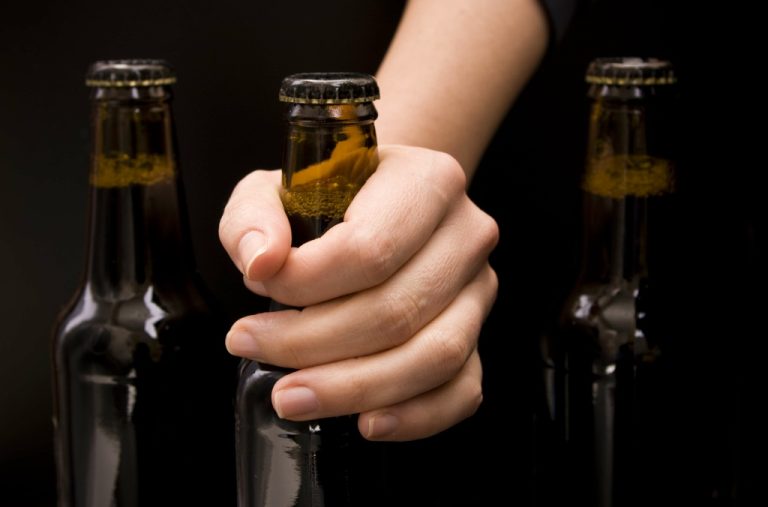What are the benefits of drinking red wine?
Drinks with high sugar content or caffeine combined with liquor in mixed drinks can make symptoms worse for some. Wine generally has a higher alcohol content than beer and cider, which may contribute to the likeliness of more frequent urination and dehydration. «If you are looking to find a drink that is less dehydrating, try choosing ones that you would enjoy over a longer period of time,» Richardson says. Sipping on one whisky all evening will likely mean you ingest less alcohol overall than three or four standard glasses of wine. Diluting a vodka with soda will also mean it’s more hydrating overall, though it’ll still have diuretic effects.
It’s because alcohol can affect your balance and sense of judgment. Over time, it also can damage the cerebellum, the area in your brain that handles balance and coordination. Alcohol can affect the way some vital organs work and make them age faster.
Liver disease
Heavy drinking can have a direct effect on certain parts of your body and on your mental health as you get older. Electrolytes are found in common foods, including salt, bananas, and watermelon, and can also be consumed from electrolyte-specific drinks or mixes. After a night of drinking it’s important to make sure you rehydrate. Stoutz says the best way to hydrate is to alternate alcohol and water while you’re drinking. Alcohols like whiskey and brandy have high levels of congeners, including tannins and acetaldehyde.
Beer and cider have lower alcohol contents than other alcoholic drinks and are less dehydrating. The alcohol content of beer can vary widely but typically ranges from 2–8% alcohol by volume (ABV). But if you already have a glass of red wine with your evening meal, drinking it in limited amounts may improve your heart health. Besides dehydration, alcohol can have other negative effects on the body. For this reason, a person should drink alcohol in moderation and avoid binge-drinking or chronic heavy drinking.
Wine’s Dehydration Effects
Researchers are also studying the possibility that alcoholic liver disease might be caused, at least in part, by your immune system attacking healthy body tissues. That said, being dehydrated before drinking alcohol could cause your blood alcohol concentration to increase more quickly. And while the non-alcoholic fluids in beer, wine, and liquor are inherently hydrating, they’re not necessarily hydrating enough to offset the effects of alcohol-induced dehydration. Proper hydration is essential for the body to function correctly. While most drinks and high-liquid foods will provide water for the body to use and stay hydrated, some drinks may act as diuretics having the opposite effect.
- Small amounts of red wine are linked to more health benefits than any other alcoholic beverage.
- In the past, people have theorized that red wine benefits health, particularly alongside a balanced diet.
- The recommended serving size of red wine is one glass (5 ounces or 147 grams).
- If you don’t drink enough water with alcohol, you can become dehydrated quickly.
It seems clear that small to moderate amounts of red wine can be good for you. However, there are also some important negative aspects to consider, which are discussed below. Red wine has been linked with several other health benefits, many of which are attributed to its potent antioxidants. However, higher intake increases the risk of heart disease dramatically (14, 18). There seems to be a J-shaped curve that explains the relationship between wine intake and the risk of heart disease. You would have to consume several bottles per day to reach the amount used in the animal studies.
You’re drinking on an empty stomach
Because a beer — consumed slowly — is the least dehydrating, it’s easy to jump to the conclusion that liquor is always the most dehydrating alcohol. In fact, a mixed drink can be more hydrating https://ecosoberhouse.com/ (okay, okay, less dehydrating) than taking a shot. Heavy drinking is linked to some cancers, including those of mouth and throat, esophagus, voice box, liver, colon and rectum, and breast.
What happens to your skin when you stop drinking alcohol – Business Insider
What happens to your skin when you stop drinking alcohol.
Posted: Tue, 14 Aug 2018 07:00:00 GMT [source]
For Bridges, Sangiovese is a go-to choice for a myriad of dishes, from a wine sauce for pasta to bagna cauda. “Its appeal lies in its balanced profile—not too heavy, with does red wine dehydrate you a pleasant acidity that, when reduced, doesn’t overly color your dish,” he says. Plus, it’s worth noting there’s plenty of affordable quality Sangiovese available.
A Guide to Healthy Eating: Strategies, tips, and recipes to help you make better food choices
Wine is available year-round, and many varieties may be consumed at any time of year. Depending on your preferences, budget, and storing options, you may want to consider aging your wine by keeping it in a temperature-controlled area for some time. However, study authors warn that heavy drinkers experienced the opposite effect. In addition, people who misuse alcohol or have alcohol use disorder have a higher risk of developing a mood disorder like depression. A 2015 review reported that resveratrol might help protect against secondary brain damage after a stroke or central nervous system injury. This is due to its positive effects on inflammation, oxidative stress, and cell death.



